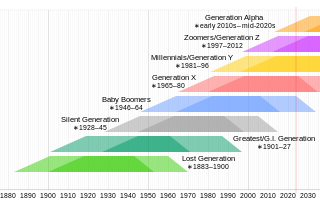
Generation X is the demographic cohort following the Baby Boomers and preceding Millennials. Researchers and popular media often use the mid-1960s as its starting birth years and the late 1970s as its ending birth years, with the generation being generally defined as people born from 1965 to 1980. By this definition and U.S. Census data, there are 65.2 million Gen Xers in the United States as of 2019. Most of Generation X are the children of the Silent Generation and early Baby Boomers; Xers are also often the parents of Millennials and Generation Z.

War film is a film genre concerned with warfare, typically about naval, air, or land battles, with combat scenes central to the drama. It has been strongly associated with the 20th century. The fateful nature of battle scenes means that war films often end with them. Themes explored include combat, survival and escape, camaraderie between soldiers, sacrifice, the futility and inhumanity of battle, the effects of war on society, and the moral and human issues raised by war. War films are often categorized by their milieu, such as the Korean War; the most popular subjects are the Second World War and the American Civil War. The stories told may be fiction, historical drama, or biographical. Critics have noted similarities between the Western and the war film.

A generation is all of the people born and living at about the same time, regarded collectively. It also is "the average period, generally considered to be about 20–30 years, during which children are born and grow up, become adults, and begin to have children." In kinship, generation is a structural term, designating the parent–child relationship. In biology, generation also means biogenesis, reproduction, and procreation.

David Norman Bossie is an American political activist. Since 2000, he has been president and chairman of conservative advocacy group Citizens United and in 2016, Bossie was the deputy campaign manager to the Donald Trump presidential campaign.

Citizens United is a conservative 501(c)(4) nonprofit organization in the United States founded in 1988. In 2010, the organization won a U.S. Supreme Court case known as Citizens United v. FEC, which struck down as unconstitutional a federal law prohibiting corporations and unions from making expenditures in connection with federal elections. The organization's president and chairman is David Bossie.
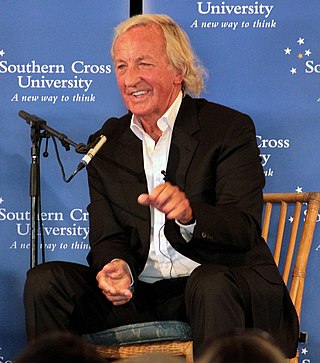
John Richard Pilger was an Australian journalist, writer, scholar and documentary filmmaker. From 1962, he was based mainly in Britain. He was also a visiting professor at Cornell University in New York.
Cinéma vérité is a style of documentary filmmaking developed by Edgar Morin and Jean Rouch, inspired by Dziga Vertov's theory about Kino-Pravda. It combines improvisation with use of the camera to unveil truth or highlight subjects hidden behind reality. It is sometimes called observational cinema, if understood as pure direct cinema: mainly without a narrator's voice-over. There are subtle, yet important, differences between terms expressing similar concepts. Direct cinema is largely concerned with the recording of events in which the subject and audience become unaware of the camera's presence: operating within what Bill Nichols, an American historian and theoretician of documentary film, calls the "observational mode", a fly on the wall. Many therefore see a paradox in drawing attention away from the presence of the camera and simultaneously interfering in the reality it registers when attempting to discover a cinematic truth.

The Silent Generation, also known as the Traditionalist Generation, is the Western demographic cohort following the Greatest Generation and preceding the baby boomers. The generation is generally defined as people born from 1928 to 1945. By this definition and U.S. Census data, there were 23 million Silents in the United States as of 2019.
Nafeez Mosaddeq Ahmed is a British investigative journalist, author and academic. He is editor of the crowdfunded investigative journalism platform INSURGE intelligence. He is a former environment blogger for The Guardian from March 2013 to July 2014. From 2014 to 2017, Ahmed was a weekly columnist for Middle East Eye, the London-based news portal founded by ex-Guardian writer David Hearst. He is 'System Shift' columnist at VICE covering issues around global systems crises and solutions. Ahmed is now Special Investigations Reporter at Byline Times.

Breitbart News Network is an American far-right syndicated news, opinion, and commentary website founded in mid-2007 by American conservative commentator Andrew Breitbart. Its content has been described as misogynistic, xenophobic, and racist by academics and journalists. The site has published a number of conspiracy theories and intentionally misleading stories. Posts originating from the Breitbart News Facebook page are among the most widely shared political content on Facebook.
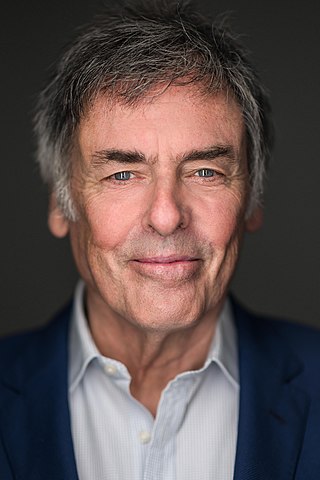
Michael Kirk is a documentary filmmaker and partial creator of the PBS show Frontline, where he worked as senior producer until 1987. Kirk founded and currently owns the production company, the Kirk Documentary Group, in Brookline, Massachusetts, which has produced dozens of award-winning documentaries, both for Frontline and through his company, that focus on political, social and cultural issues.

Inside Job is a 2010 American documentary film, directed by Charles Ferguson, about the late-2000s financial crisis. Ferguson, who began researching in 2008, said the film is about "the systemic corruption of the United States by the financial services industry and the consequences of that systemic corruption", amongst them conflicts of interest of academic research, which led to improved disclosure standards by the American Economic Association. In five parts, the film explores how changes in the policy environment and banking practices helped create the financial crisis.
The Strauss–Howe generational theory, devised by William Strauss and Neil Howe, describes a theorized recurring generation cycle in American history and Western history. According to the theory, historical events are associated with recurring generational personas (archetypes). Each generational persona unleashes a new era lasting around 20–25 years, in which a new social, political, and economic climate (mood) exists. They are part of a larger cyclical "saeculum". The theory states that a crisis recurs in American history after every saeculum, which is followed by a recovery (high). During this recovery, institutions and communitarian values are strong. Ultimately, succeeding generational archetypes attack and weaken institutions in the name of autonomy and individualism, which eventually creates a tumultuous political environment that ripens conditions for another crisis.
Neil Howe is an American author and consultant. He is best known for his work with William Strauss on social generations regarding a theorized generational cycle in American history. Howe is currently the managing director of demography at Hedgeye and he is president of Saeculum Research and LifeCourse Associates, consulting companies he founded with Strauss to apply Strauss–Howe generational theory. He is also a senior associate at the Center for Strategic and International Studies' Global Aging Initiative, and a senior advisor to the Concord Coalition.
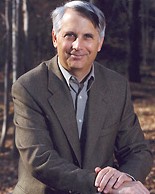
William Strauss was an American author, playwright, theater director, and lecturer. As an author, he is known for his work with Neil Howe on social generations and for Strauss–Howe generational theory. He is also known as the co-founder and director of the satirical musical theater group the Capitol Steps, and as the co-founder of the Cappies, a critics and awards program for high school theater students.
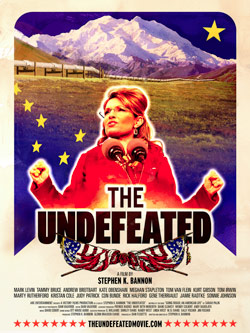
The Undefeated is an American political documentary on Sarah Palin, who was Governor of Alaska and later the Republican Party nominee for vice president in the 2008 United States presidential election. The documentary is written and directed by Stephen K. Bannon. The Undefeated was released on July 15, 2011.
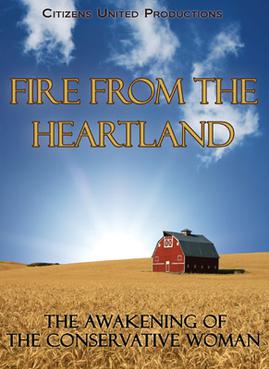
Fire from the Heartland: The Awakening of the Conservative Woman is a 2010 American documentary film written and directed by former Breitbart News LLC executive chairman Steve Bannon, and produced by David N. Bossie for Citizens United Productions. The documentary stars Michele Bachmann, Deneen Borelli, and Ann Coulter, and focuses on female participation in conservative politics.

Stephen Kevin Bannon is an American media executive, political strategist, and former investment banker. He served as the White House's chief strategist for the first seven months of U.S. president Donald Trump's administration. He is a former executive chairman of Breitbart News and previously served on the board of the now-defunct data-analytics firm Cambridge Analytica.

American Dharma is a 2018 British-American documentary film directed by Errol Morris. The film follows the career of political strategist Steve Bannon. The film was released on November 1, 2019, by Utopia.
Heroes of the Fourth Turning is a 2019 play by American writer Will Arbery. It focuses on a group of young Catholic intellectuals who reunite at their college in Wyoming. It premiered off-Broadway. It was received positively by both theatrical critics and conservative media and was a finalist for the 2020 Pulitzer Prize in drama.














